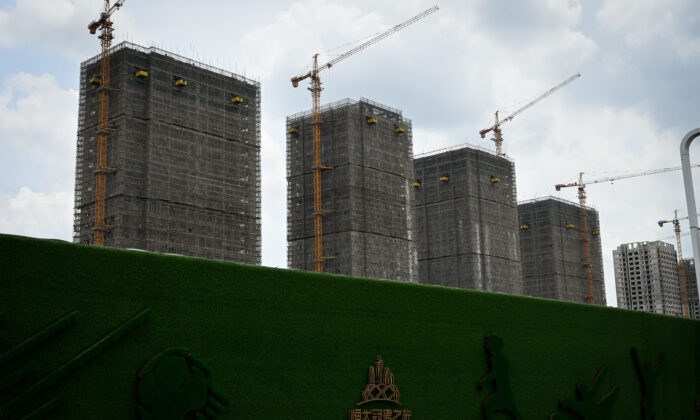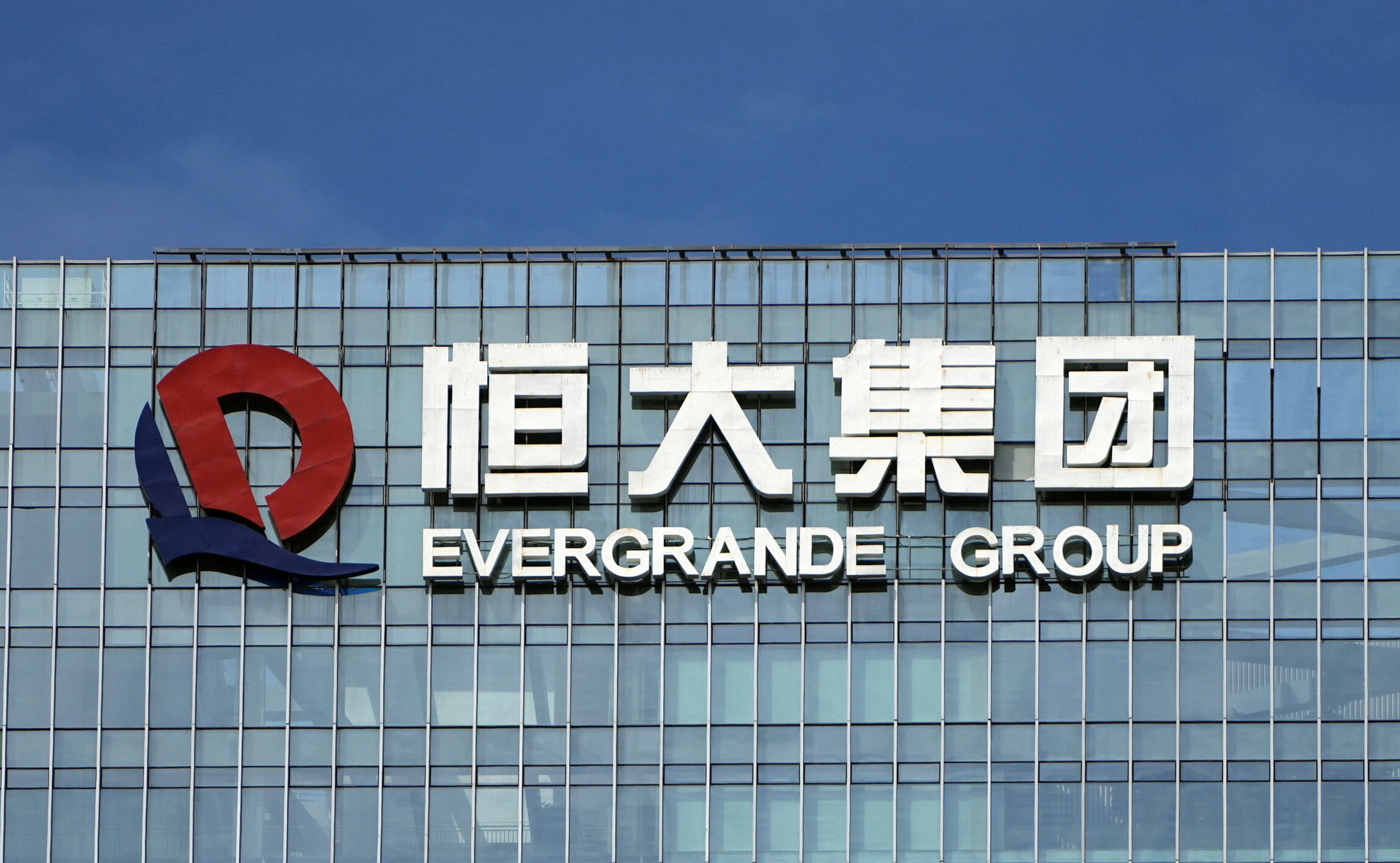
A general view shows Evergrande residential buildings under construction in Guangzhou, in Chinas southern Guangdong province on July 18, 2022. (Jade Gao / AFP via Getty Images)
CCP policy behind the fall of Chinese property giants
By
Amid the real estate debt crisis, China Evergrande Group and two other Chinese property giants have fallen from the 2022 Fortune Global 500, reducing the number of Chinese property developers to five from eight last year.
Fewer Chinese developers in the Global 500 reflect the collapsing Chinese real estate market as domestic demand and home prices tumble. The two other property giants that fell from the Fortune Global 500 list are Sunac China Holdings and China Resources Land.
Chinese developers left millions of presold housing unfinished due to liquidity problems. As a result, most Chinese banks are facing a mortgage payment halt or “mortgage strike”—where homebuyers refuse to pay mortgages unless the developers resume construction.
Over 327 mortgage strike notices were issued for unfinished presold apartments in China as of Aug. 13, according to MacroMicro, a global economic data research firm. Most of the notices accused the Chinese banks of misusing the presale funds.
S&P Global estimated that 2.4 trillion yuan (about $355 billion) of mortgages could be at risk of being unpaid. That amounts to around 6.5 percent of all outstanding mortgages.
The rating agency also projects that home sales in China could drop as much as 33 percent this year amid the mortgage strike, further squeezing the liquidity of distressed developers and leading to more defaults, Bloomberg reported.
Recently, many Chinese developers have resorted to bond exchanges and debt extensions to buy time in order to avoid default. However, according to S&P Global, at least 20 percent of rated Chinese developers will likely become insolvent despite their efforts to buy time as investors could press their claims through the courts or debt restructuring.
Defaulted developers in China have left behind many unfinished buildings, each representing a risk factor for the loan-issuing banks as buyers may participate in the nationwide mortgage strikes.
A research paper released by the National Bureau of Economic Research (pdf), an American thinktank, estimated that the real estate sector constitutes 29 percent of China’s GDP and that a 20 percent fall in real estate activity could lead to a 5 to 10 percent fall in GDP.
Despite recent attempts by Beijing to bolster the country’s real estate markets, combined sales at China’s top 100 property developers in July fell by 29 percent from June and by 40 percent year-over-year, according to data released by China Real Estate Information Corporation, a Chinese real-estate data provider.
“The real estate industry in China is in a vicious cycle—defaults have severely dampened the confidence of investors and home buyers, resulting in limited external funding and plummeting sales,” Katherine Jiang, a Hong Kong-based financial analyst, told The Epoch Times.
“Falling sales drive down developers’ operating cash flows and dent the market sentiment, jeopardizing property developers’ ability to access the debt and banking market and significantly affecting their financing cash flow. Home buyers would also delay their purchase and opt for a wait-and-see approach. As a result, property sales will fall further, and [property] prices will also drop.”
For example, Skyfame Realty, a private Chinese real estate developer, had all its bonds suspended on the Hong Kong Stock Exchange on June 28 after it failed to pay off a secured loan. Before disclosing the default, the firm revealed on June 16 that it was under “unprecedented liquidity pressure.”
CCP Policy Behind the Fall of Chinese Property Giants
Evergrande, the second largest property developer in China by sales, was ranked 122nd in the 2021 Fortune Global 500. However, that same year it defaulted, shocking the market as the world’s most indebted real estate company.

The company logo on the headquarters of China Evergrande Group in Shenzhen, Guangdong province, China, on Sept. 26, 2021. (Aly Song/Reuters)
In 2021, Chinese property giants, including Evergrande, Fantasia, and Kaisa, have fallen into a debt crisis, and China’s “Three Red Lines Policy” has worsened the problem. The three red lines are a series of debt thresholds, severely restricting the borrowing capacity of some real estate developers.
The People’s Bank of China and the Ministry of Housing introduced the Three Red Lines Policy in August 2020, aiming to improve the financial health of the real estate sector by reducing developers’ leverage, improving debt coverage, and increasing liquidity. However, some major property developers, such as Evergrande, had failed to meet the new regulation.
Chinese economist Huang Jun told The Epoch Times that the primary reason for Evergrande’s collapse was that the state-owned banks stopped lending, knowing that Evergrande had issued bonds with very high-interest rates, which it could not repay.
Huang Jun is the chief economist of the China Enterprise Capital Alliance and a member of the Asian Real Estate Association’s research committee. He currently resides in the United States.
“Beijing likely played a role in Evergrande’s collapse,” Huang explained. “Since the housing reform in 1998, China’s private real estate enterprises have grown large. But the CCP wants to regain control by turning private enterprises into state-owned.”
Huang mentioned the CCP’s long-standing economic philosophy, “the state enterprises advance, the private sector retreats,” a principle that suppresses the free-market economy and bolsters state control. Since the early 2000s, the CCP has promoted the dominance of state-owned enterprises at the expense of the private sector.